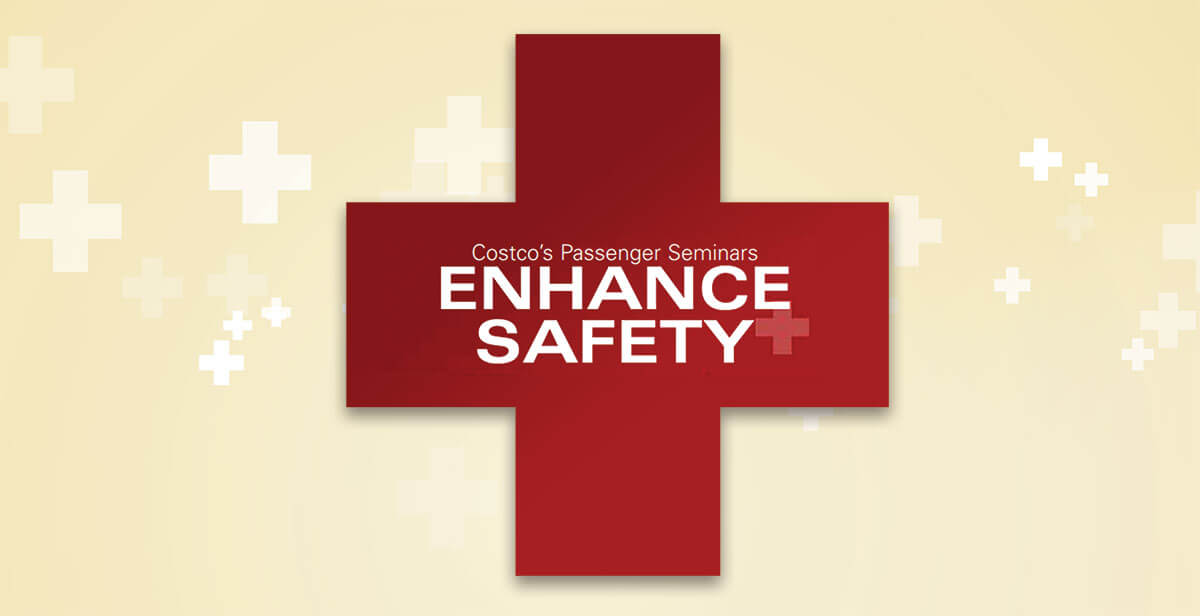
How one NBAA Member Company created its own safety program for employees who fly on company aircraft.
Feb. 1, 2012

Smoke begins to fill the cabin of the Gulfstream 350, and it starts to get dark very quickly. The emergency lights come on, and the passengers are instructed to evacuate immediately. Guided by the emergency lights, they make their way in the semi-dark to the emergency exit, which is one of the cabin windows.
One by one, the passengers crawl through the window to safety – and find themselves standing on the wing of the G350, which is securely parked in the hangar of the Costco Wholesale flight department at King County Boeing Field Airport (BFI) near Seattle, WA.
The simulated emergency evacuation, which uses a real smoke machine, is all in a day’s work for Costco’s flight department, which developed its innovative Passenger Aircraft Safety Seminar (PASS) for Costco employees who fly on company aircraft.
The seminar, which takes three to four hours to complete, combines an informative safety presentation by flight department staff with hands-on demonstrations of safety equipment, such as life vests, inflatable rafts, oxygen masks, fire extinguishers and portable breathing equipment (PBE), in addition to the mock evacuation. For PASS classes that are not held at the airport (many are held at company headquarters in nearby Issaquah, WA), the flight department built mock-ups of the emergency exits for all three of Costco’s aircraft: the G350, a Gulfstream V and a Gulfstream 200.
“The PASS program is voluntary, but we never have a lack of volunteers,” said Corky Culver, administrative manager and safety officer for Costco’s flight department. “On any given flight, there’s at least one passenger on board who’s taken the class.” Culver estimates that well over 100 Costco employees have taken the PASS workshop, which has primarily been held at company headquarters, as well as at the BFI facility, but also at the company’s East Coast location near Dulles International Airport (IAD) in Virginia, where the G200 is based.
John Minola, Costco vice president, corporate counsel, has taken PASS a number of times, and appreciates the fact that passengers have been trained “so we can help each other” if need be. Minola, who travels on company aircraft six to ten times a year, has found the hands-on aspect of PASS to be very informative. “It’s helpful to feel what it’s like to try and lift the life raft, and to actually put on a life vest and use it,” said Minola, who praised the flight department’s commitment to safety.
Costco pilot Alyce Weber has presented most of the PASS seminars, which include a comprehensive PowerPoint presentation on safety awareness and survival strategies, in addition to the information on aircraft safety equipment, furnishings and medications on board.
Weber also provides background information on the company fleet and the Costco flight department, as well as the ongoing use of the International Standard for Business Aircraft Operations (IS-BAO), which includes guidance on how to implement a safety management system. The flight department began the IS-BAO registration process in 2004 and continually reviews its policies and procedures to ensure they reflect the flight department’s current operations.
Even before the safety features and equipment of each company aircraft are discussed, Weber points out prudent ramp procedures, which differ significantly from flying commercial. Watch where you are going and look where you step, PASS attendees are told. Weber even goes over some tips for international operations, such as documentation, customs, security, medication and personal items.
“People who come to the class are amazing, and ask great questions,” said Weber. The flight department keeps track of who has traveled on company aircraft in the past, as well as the passengers scheduled for upcoming trips, so they can be invited for new or refresher PASS sessions. Although many trips are domestic – primarily warehouse and depot visits, including multiple stops in single days with lots of multi-leg missions – the GV in particular is used for international trips.
Weber likes to use the company aircraft for classes when possible, but the mock-ups of emergency exits work well when PASS classes are held at Costco headquarters. “Many people don’t realize that the exit may be round – like a window – and a pretty tight space to crawl through,” said Weber.
Weber has been working with Costco’s company-wide Costco University to develop an online version of the PASS program. The online version will be self-paced and interactive, and will cover everything that she includes in a regular PASS seminar, except for the hands-on demonstrations and simulations. “But since employees can do it from their desk, it should be easy for them to take it, no matter where they are,” said Weber.
Ken Kimble, Costco’s assistant general merchandising manager, took the PASS class about two years ago, and learned some things he hadn’t thought of before: “I didn’t realize that windows could be used to exit – it just hadn’t dawned on me,” said Kimble. “I learned a lot of basic things, as well as the professionalism of our flight department. They do a great job of making a trip a great experience.” Kimble flies on company aircraft about once a month, primarily domestic flights on the GV and G350.
Kimble has been so enthused by his experience flying on Costco aircraft that he got his private pilot license about a year ago, and now wants to get an instrument rating. “My goal is to get a transfer to our flight department,” joked Kimble.


 International Business Aviation Council Ltd.
International Business Aviation Council Ltd.